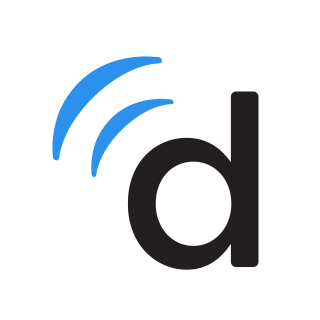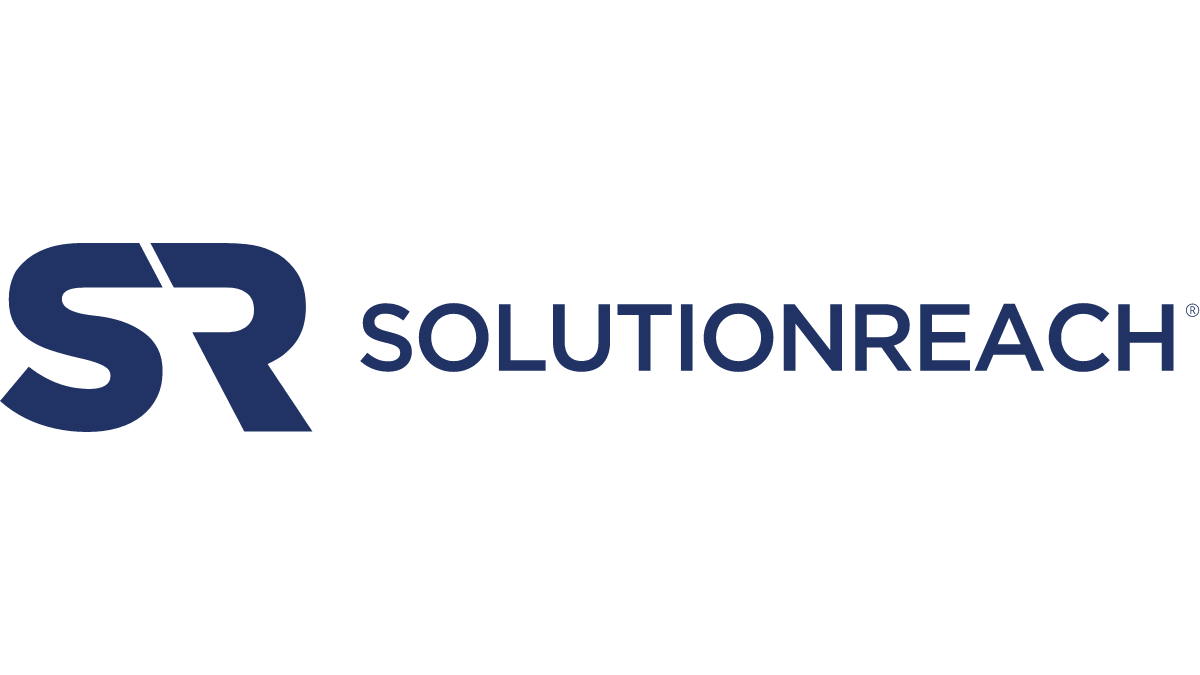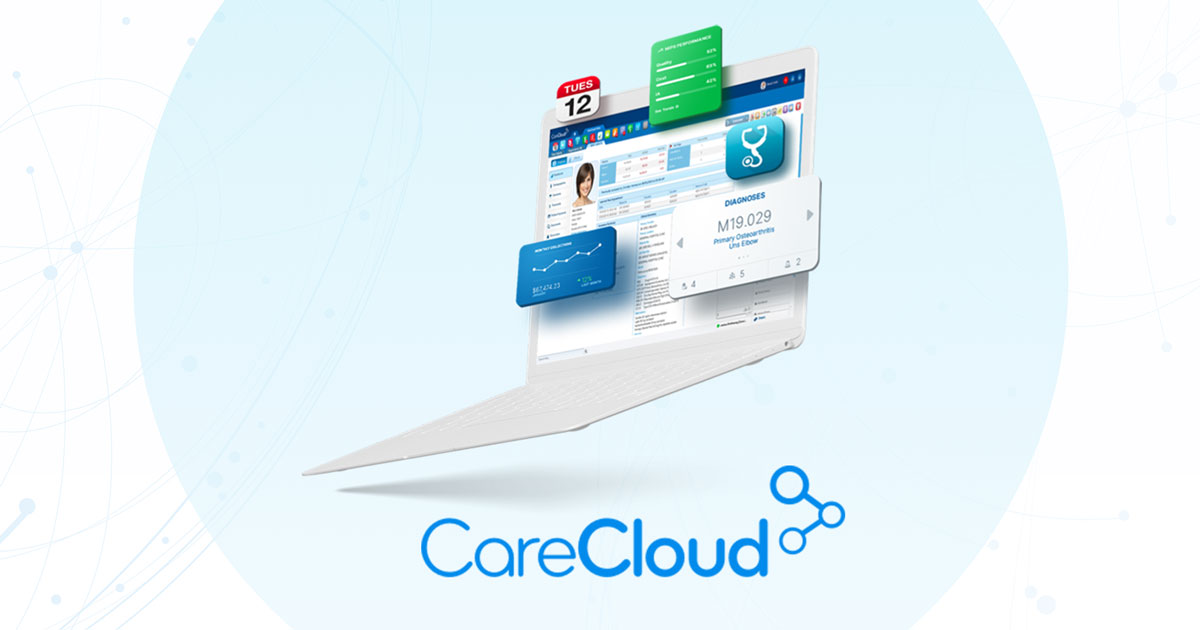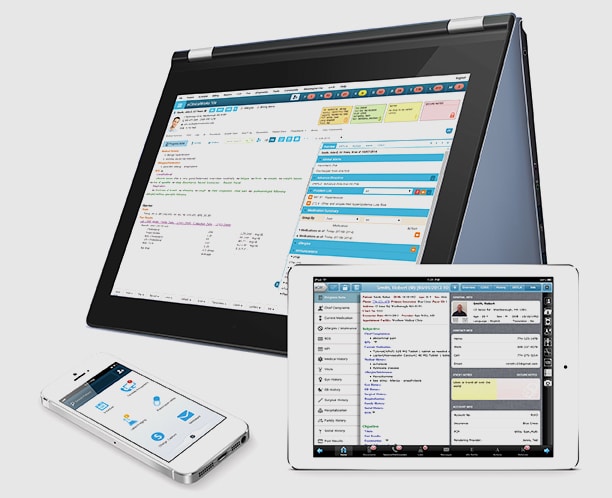Introduction
Finding the right patient scheduling and appointment software is crucial for healthcare practices to efficiently manage patient booking, communication and overall workflows. However, with so many options on the market it can be challenging to identify the solution that perfectly fits your unique needs. This guide evaluates and compares 15 of the most popular patient scheduling platforms based on key criteria like ease of use, customization, reporting, pricing and more to help you make an informed decision.
Methods of Evaluation
To rank the top patient scheduling software, we considered several conventional evaluation methods like features, usability, integrations, pricing and customer reviews. Additionally, we also took into account less traditional metrics like number of backlinks, traffic and keyword trend. This helped us gauge the overall market presence, mindshare and popularity of each provider. The platforms are then rated and sorted based on the composite score from all evaluation parameters to determine the top 15 options.
1. Acuity Scheduling
Acuity Scheduling is an online appointment scheduling software that allows professionals and businesses to manage their booking calendars and client/patient scheduling online. Founded in 2006 and based in Atlanta, GA, Acuity Scheduling makes it easy for service-based businesses like salons, spas, therapists, tutors and more to manage their bookings and appointments.
Pros: Some key advantages of Acuity Scheduling include:
– Free basic version for small practices
– Intuitive calendar management interface for scheduling appointments
– Syncs bookings with major calendar platforms like Google and Outlook
– Allows online booking forms to be embedded on websites for easy client booking
– Offers payment processing for appointments throughStripe or PayPal
Cons: One potential disadvantage is that the free version has limited calendar availability, though it works well for solopreneurs and small teams. The paid plans are required for higher booking volumes and advanced features.
Pricing: Acuity Scheduling offers three paid plans in addition to the free basic plan:
– Premium plan starting at $25/month
– Business plan starting at $45/month
– Enterprise plan with custom quoting
All paid plans remove limitations on calendar availability and unlock more booking and payment processing features.
Some key stats about Acuity Scheduling include:
– Used by over 100,000 businesses worldwide
– Integrates with over 50 platforms including Google Calendar, Outlook, Salesforce and more
– Allows businesses to accept online bookings 24/7 from their website or marketplace listings
2. Centricity Practice Solution
Centricity Practice Solution is an electronic medical record (EMR) software developed by GE Healthcare. GE Healthcare is a division of General Electric and one of the leading healthcare companies in the world. The Centricity Practice Solution EMR aims to help practices and clinics digitally transform care delivery.
Pros: Key advantages of Centricity Practice Solution include:
– Leading EMR for large organizations
– Strong support for specialty workflows
– Robust analytics and population health tools
– Integrated telehealth capabilities
– Customizable interfaces to fit any practice or workflow
Cons: A potential disadvantage is that the upfront costs and implementation time can be higher compared to other EMRs due to its scale and capabilities suited for larger organizations.
Pricing: Pricing for Centricity Practice Solution varies depending on the size and needs of the practice or organization. It is generally priced on a per provider per month basis starting at around $150/provider/month.
Some key stats about Centricity Practice Solution include:
– Used by over 35,000 physicians
– Supports over 650 specialties
– Integrates with over 90 health IT systems
– Processes over 1 billion patient records annually
3. Doximity
Doximity is a popular online network and patient scheduling software for healthcare professionals. Founded in 2011 and headquartered in San Francisco, Doximity has over two million verified members in its clinician network, making it the largest and most widely used digital platform for medical professionals in the US.
Pros: Some key advantages of using Doximity include:
– Large established network of healthcare providers for secure communications and collaboration
– Integrated online scheduling functionality to help practices book and manage appointments
– Secure messaging platform allows for HIPAA compliant communications with other clinicians
– Online patient faxing eliminates the need for physical fax machines in the office
Cons: A potential disadvantage is that the premium paid subscriptions may be too expensive for some smaller medical practices. Basic use of the platform is free but advanced features like online scheduling require a monthly or annual subscription.
Pricing: Doximity offers both free basic accounts as well as premium paid subscriptions. Paid tiers including Doximity Dialer Plus start at $99 per month for a single provider.
Some key stats about Doximity include:
– Over 2 million verified healthcare professional members including doctors, NPs, PAs, nurses and more
– Serves over 80% of physicians in the US
– Enables 50 million secure messages sent per year between clinicians
– Secured over $300 million in total funding to date
4. NextGen
NextGen is a leading provider of ambulatory healthcare software and services with over 30 years of experience. Their flagship product is the NextGen Enterprise Healthcare IT platform which provides a comprehensive suite of electronic health records (EHR), practice management, and patient engagement solutions.
Pros: Some key advantages of NextGen solutions include:
– Comprehensive healthcare solution that integrates EHR, practice management and billing into a single platform
– Robust integration between EHR and practice management tools for a seamless workflow
– Strong practice management tools for managing appointments, billing, and reporting
Cons: One potential disadvantage is that as a larger company, customers may experience slightly slower product development and support response times compared to smaller competitors.
Pricing: NextGen offers both perpetual and subscription-based pricing models. Pricing varies based on the number of providers, modules, and additional services selected. Contact NextGen sales for an exact quote tailored to your organization’s needs.
Some key stats about NextGen include:
– Over 50,000 providers use NextGen solutions
– Serve over 25 million patients
– Operations in over 30 countries worldwide
5. Allscripts
Allscripts is a leading healthcare IT company based in Chicago, Illinois. Founded in 1986, Allscripts provides electronic health record (EHR) systems, practice management, revenue cycle management, and care coordination solutions to over 180,000 healthcare organizations worldwide. Their patient scheduling software, FollowMyHealth, is an integrated platform that aims to streamline the entire patient scheduling and access process.
Pros: Key advantages of Allscripts FollowMyHealth include:
– Fully integrated with Allscripts EHR solutions for easy data sharing
– Comprehensive specialty and ancillary scheduling capabilities
– Real-time insurance eligibility checking
– Sophisticated calendar management tools
– Built-in patient engagement tools like online scheduling and reminders
Cons: A potential disadvantage is that as an integrated Allscripts solution, it may not be as flexible to use for organizations not already invested in Allscripts EHR/PM platforms.
Pricing: Pricing for Allscripts FollowMyHealth is not publicly listed but is typically sold as part of an enterprise contract that includes EHR, PM, and scheduling modules. Configurations and add-on services are customized to each organization’s needs and contract terms.
Some key stats about Allscripts FollowMyHealth patient scheduling software include:
– Used by over 15,000 medical practices and facilities
– Supports scheduling across primary care, specialty care, and ancillary services
– Integrates with Allscripts Sunrise EHR and PM solutions for a seamless workflow
– Handles over 150 million patient appointments per year
6. Simple Practice
SimplePractice is an all-in-one platform for healthcare and wellness professionals to manage their practice. Since 2009, SimplePractice has been providing an intuitive electronic health records (EHR) system and practice management software. With over 185,000 users, it is one of the leading solutions for healthcare providers.
Pros: Some key advantages of SimplePractice include:
– All-in-one solution for clinical, financial, and administrative workflows.
– Intuitive and customizable templates for forms, assessments, and treatment plans.
– Integrates well with other apps commonly used by healthcare providers.
– Good support and guidance available for both purchasing decisions and ongoing use.
Cons: A potential disadvantage is the pricing, as SimplePractice does not offer a free forever plan. However, it offers generous free trials and transparent pricing.
Pricing: SimplePractice offers three main pricing tiers:
– Essentials: $49/month for solo practitioners. Includes EHR, billing, and more.
– Professional: $79/month for small groups. Adds more storage and integrations.
– Premium: starts at $119/month for larger practices. Includes priority support.
Some key stats about SimplePractice include:
– Used by over 185,000 health and wellness professionals globally.
– Integrates with over 50 other apps including telehealth platforms, billing, and more.
– Offers customization options for templates, forms, and workflows.
– Provides both HIPAA-compliant cloud and self-hosted on-premise options.
– Winner of the Capterra Project of the Year award in 2022.
7. Solutionreach
Solutionreach is a leading patient engagement and scheduling software that helps healthcare providers better communicate with and retain patients. Founded in 2004, Solutionreach works with over 10,000 medical practices to streamline workflows and grow recurring revenue through automated reminders and digital forms.
Pros: Key advantages of using Solutionreach include:
– Built specifically for healthcare workflows which results in intuitive functionality for providers and staff
– Automates repetitive tasks like appointment reminders, prescription renewals, and form collection to save time
– Advanced business intelligence dashboard provides key performance metrics and insights to identify areas for improvement
– Intuitive interface is easy for patients to use for things like online scheduling and portal access
Cons: One potential disadvantage is the cost may be prohibitive for some very small practices. Solutionreach’s pricing is based on the number of providers and panels sizes which means smaller offices could pay upwards of $1000/month.
Pricing: Solutionreach offers flexible pricing plans tailored to practice size starting at $99/provider/month for their essentials plan. Additional features and capabilities are available in their standard ($199/provider/month) and premium ($299/provider/month) plans. Larger enterprise clients receive custom quoting.
Some key stats about Solutionreach include:
– Over 10,000 medical practices actively use Solutionreach
– Process over 250 million appointments and communications each year
– Achieve an industry-leading 99.999% uptime SLA
– Integrates with over 50 leading EMR/PM systems like Epic, Cerner, and athenahealth
8. CareCloud
CareCloud is a healthcare technology company that offers a comprehensive suite of cloud-based solutions including electronic health records (EHR), practice management, revenue cycle management, telehealth and patient experience platforms. Founded in 2005, CareCloud serves over 40,000 providers across all 50 U.S. states.
Pros: Some key advantages of CareCloud’s solutions include:
– Robust EHR and practice management capabilities in a single platform
– Variety of integration services that link with many third party applications
– Dedicated mobile apps for patients and providers for optimal flexibility and access
Cons: One potential disadvantage is that CareCloud’s solutions may have a relatively higher up-front and ongoing cost compared to some competitors due to the comprehensive suite of solutions offered.
Pricing: CareCloud offers various pricing plans depending on the solutions needed. Generally, pricing is based on a per provider, per month model that ranges between $100-$300 per provider. Additional costs apply for various add-ons and services.
Some key stats about CareCloud include:
– Over 40,000 medical providers use CareCloud solutions
– Serves customers in all 50 U.S. states
– Founded in 2005 and headquartered in Miami, Florida
– Employs over 1,300 team members
9. WebPT
WebPT is leading physical therapy software and EMR designed specifically for physical therapists, occupational therapists, and sports medicine professionals. In business since 2007, WebPT helps over 25,000 therapists grow and manage their practice.
Pros: Some key advantages of using WebPT include:
– Dedicated physical therapy software with features tailored specifically for PT practices.
– Engaging self-care library and modalities to help patients continue treatment at home.
– Efficient documentation, scheduling, and billing workflows to boost productivity and revenue.
– Integrations with payment clearinghouses, eligibility checkers, and more for a streamlined workflow.
– Cloud-based system allows access from any device for flexibility in care.
Cons: A potential disadvantage is the monthly subscription pricing model which requires ongoing costs compared to a one-time purchase of on-premise software. However, this provides automatic updates and upgrades without additional fees.
Pricing: WebPT offers several flexible pricing plans starting at $99 per month for a single therapist. Additional plans are available based on number of users and desired features. All plans include full access to its software platform, self-care library, forms, billing features and integrations.
Some key stats about WebPT include:
– Used by over 25,000 physical, occupational, and sports medicine therapists worldwide.
– Integrates with over 30 different billing, scheduling, and PDMP systems.
– Has over 500 customizable templates, forms, and reports.
– Includes an online exercise library with over 1,000 self-care videos and modalities.
– Features built-in billing, scheduling, and documentation workflows to streamline the entire patient journey.
10. eClinicalWorks
eClinicalWorks is one of the largest and oldest cloud-based EHR software providers in the US. Founded in 1999, eClinicalWorks serves over 30,000 medical providers at 95,000 clinic sites. Their integrated EHR and practice management software helps providers efficiently manage patient scheduling, billing, and other back-office tasks.
Pros: Some key advantages of eClinicalWorks include:
– Integrated EHR and practice management solution in one platform
– Dedicated clinical workflows optimized for various specialties like pediatrics, OB/GYN etc.
– Powerful analytics and reporting to track metrics and analyze performance
Cons: A potential disadvantage is that the interface may feel outdated or cluttered compared to newer scheduling software designed with modern UX best practices.
Pricing: eClinicalWorks offers different pricing tiers based on the number of providers. The basic tier starts from $149 per clinician per month with add-on modules available for scheduling, care coordination, telehealth etc.
Some key stats about eClinicalWorks include:
– Serves over 30,000 medical providers and 95,000 clinic sites
– Processes over 1 billion patient records
– Supports 400 specialties
– Developed and optimized for smaller practices and solo practitioners
11. DrChrono
DrChrono is a cloud-based EHR, practice management and medical billing solution designed for small to medium sized practices. Founded in 2010, DrChrono serves over 25,000 medical professionals across 46 specialties.
Pros: Some key advantages of DrChrono include:
– Well-designed EHR and practice management software specifically for small practices
– Built-in telehealth and e-prescribing capabilities
– Tight integration with Apple and Android mobile devices allowing access to patient records anywhere
Cons: One potential disadvantage is that as a cloud-based solution, it requires an internet connection to access patient records and functionality. This could be an issue for some practices in rural areas with inconsistent internet.
Pricing: DrChrono offers several pricing plans starting at $99 per month for a single provider practice. Pricing increases based on the number of providers and additional modules/capabilities needed. They also offer a free 30-day trial to test the software.
Some key stats about DrChrono include:
– Over 25,000 medical providers trust DrChrono
– Serves 46 medical specialties including primary care, dermatology, mental health and more
– Integrates with over 80+ medical devices and exists mobile apps for iOS and Android
12. PointClickCare
PointClickCare is a leading cloud-based healthcare software provider serving the long-term and post-acute care market. Founded in 2001, PointClickCare helps over 30,000 facilities streamline workflows and improve resident care through its fully integrated software platform.
Pros: Some key advantages of PointClickCare include:
– Specializes in long term care workflows and documentation needs
– Highly customizable platform that can be tailored for any facility’s processes
– Mobile apps allow caregivers to document from anywhere at any time
– Integrated platform eliminates need for multiple disparate systems
Cons: One potential disadvantage is the up-front implementation cost which can be significant for larger facilities adopting an all-new system.
Pricing: PointClickCare offers flexible pricing plans tailored to each facility’s needs. Pricing is typically based on facility size and type as well as desired modules and features. Implementation and setup fees also apply. Free trials and customized quotes are available on the PointClickCare website.
Some key stats about PointClickCare include:
– Serves over 30,000 long term care facilities globally
– Integrates electronic health records, billing & payment processing, document management and more
– Processes over 500 million claims transactions annually
– Available in over 30 languages
13. Wellsky
Wellsky is a leading provider of patient scheduling software. Founded in 1999, Wellsky provides cloud-based software solutions that help healthcare organizations streamline operations and improve patient experiences. Their suite of solutions aim to optimize workflows, enhance patient engagement and make the scheduling process more efficient.
Pros: Some key advantages of Wellsky’s patient scheduling software include:
– Robust reporting dashboards that provide insights into scheduling performance and bottlenecks.
– Patient-centered workflows that make it convenient for patients to view schedules and book appointments online or via mobile.
– Integrated billing and scheduling that helps reduce no-shows and maximize revenue.
Cons: One potential disadvantage is that as a larger established player, Wellsky may have higher pricing compared to newer startup alternatives.
Pricing: Wellsky offers flexible pricing plans tailored to organizations of different sizes and specialties. Pricing is not publicly disclosed but starts at thousands of dollars per month depending on the number of providers, users and additional modules selected.
Some key stats about Wellsky include:
– Over 1,500 healthcare organizations use their solutions across the US.
– Their solutions support over 100 million patient visits annually.
– They have over 20 years of experience in healthcare technology.
Welcome to WellSky®Welcome to WellSky® Creating smarter solutions for whole person carewellsky.com
14. ScheduleOnce
ScheduleOnce is an easy to use patient scheduling software that allows doctors and medical providers to manage their appointment bookings. Founded in 2011 and based in Montreal, Canada, ScheduleOnce helps over 15,000 medical practices improve their patient booking process.
Pros: Some key advantages of ScheduleOnce include:
– Very easy to use and intuitive interface
– Syncs seamlessly with other apps such as calendars and CRM tools
– Affordable pricing plans for practices of all sizes
Cons: One potential disadvantage is that the free tier only allows for one provider, so larger practices may need to upgrade for additional provider profiles.
Pricing: ScheduleOnce offers three pricing tiers:
– Free plan: $0/month but only supports one provider
– Basic plan: $19/month per provider
– Premium plan: $39/month per provider with additional features
Some key stats about ScheduleOnce include:
– Over 15,000 medical practices use ScheduleOnce globally
– Integrates with over 50 medical practice management systems
– Processes over 50 million appointment booking requests annually
15. American Well
American Well, also known as Amwell, is a leading telehealth provider that offers a comprehensive virtual care delivery platform. Founded in 2006, Amwell works with over 2,500 hospitals and 55 health plans to provide care through its platform.
Pros: Some key advantages of Amwell’s platform include:
– Telehealth and virtual care capabilities that allow visits to take place via video, phone, and chat.
– Customizable workflows that can be tailored to specific specialties or care settings.
– Secure communications and data sharing capabilities that comply with HIPAA and relevant regulations.
Cons: A potential disadvantage is that the platform requires customization and setup which involves costs and time to implement fully. It may not be as easily deployed for smaller practices compared to other options.
Pricing: Amwell offers various pricing models depending on needs and capabilities required. Pricing generally starts at $99 per provider per month for basic telehealth services. Additional services like integrated EHR capabilities or custom development incur additional recurring or one-time fees.
Some key stats about Amwell’s platform include:
– Serves over 130 million lives globally
– Over 10 million virtual visits completed to date
– Integrates with major EHR systems like Epic and Cerner
– Partners with over half of the top 20 health plans in the US
Conclusion
Choosing the right patient scheduling software is important for streamlining your practice’s operations and improving the patient experience. We hope this comprehensive evaluation of the 15 top providers gives you valuable insights to make an informed selection. Consider your unique workflow needs, budget, integration requirements and growth plans while shortlisting options. Then test drive the top choices to find the best fitting solution to boost booking rates and maximize practice productivity.

















